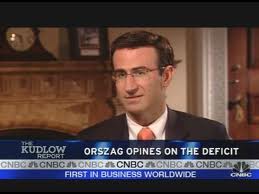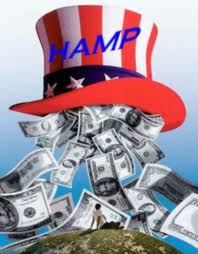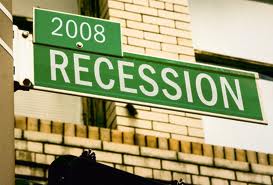Inside the Obama Administration with Ezra Klein � and Mandelman
Okay, look… this article is long, I know. Ezra Klein’s article in the Washington Post was also long. The thing is, if you’ve been wondering why the administration has made the decisions it has, why they didn’t do more to address the housing markets, or to create jobs, things like that… well, then this provides real answers to those questions. If you really don’t have time to read it, I would suggest that you at least read Sec. Geithner’s quotes and my response, near the end. But, if you have the time, it’s worth reading… I spent three days writing it.
I’m not saying this article should make you not want to vote for Obama in 2012… after all, the other side hasn’t said anything better, and may be much worse. By understanding why they did what they did, perhaps you will write to your representative to demand policy changes. So, I’m not trying to make anyone change their political views as far as next year’s election goes.
In yesterday’s Washington Post, columnist Ezra Klein wrote an article titled: “Could this time have been different?” It begins by describing events that took place during the early days of the Obama Administration, as the new president prepared to go to congress to propose the $800 billion economic stimulus plan… the largest in our nation’s history… that was to tackle the most severe recession in 70 years.
Klein provides a window into the inner workings of the new administration, explaining that the president’s advisors originally wanted a much larger stimulus, something in the $1.2 trillion range, but congress would never go along. Apparently Larry Summers ultimately convinced the president to support the $800 billion plan.
Apparently, the challenge was to “estimate precisely what a dollar of infrastructure spending or small-business relief would do when let loose into the economy under these unusual conditions.” Christina Romer was charged with forecasting the number of jobs created as a result of the stimulus spending. When Klein explained that Romer was pulling data from sources that included the Federal Reserve and Mark Zandi of Moody’s Analytics… honestly, I got the chills.
A couple of paragraphs later, of Romer’s forecast, Klein states: “There was only one problem: It was wrong.” I had nothing to say.
Problems Forecasting Unemployment…
Look, I remember this issue quite clearly… it’s the one about the administration’s insanely optimistic unemployment forecasts in the stimulus plan… 8% in 2009 and back down to 7% in 2010.
It didn’t take long to know that those numbers were going to be a tad low. Unemployment hit 8.2% in February of 2009, just weeks after the America Recovery and Reinvestment Act was proposed, and in the months that followed it went 8.6 – 8.9 – 9.4 – 9.5 – 9.5 – 9.7 – 9.8 – 10.1 – 9.9 – 9.9.
And 2010, when the administration’s plan called for 7% unemployment, the contrast was even worse, starting the year off with 9.7% in January and remaining in that range throughout the year, finishing the year at 9.8% in November, and then 9.4% in December.
Apparently, the actual unemployment numbers turned out to be worse than even the administration’s “nightmare scenario,” which was a forecast of what would occur should congress not pass the stimulus plan. So what?
Klein seems to think that it’s important to understand how the administration got it so wrong… but I could care less. I think the salient point is that they knew they had gotten it wrong soon enough, and yet they did nothing to course correct… they just kept sailing into the storm. Their behavior made no sense. A few months later they would use the same type of zippy forecasts when conducting the bank stress tests.
Klein explains that it was the Bureau of Economic Analysis that blew it by originally saying the economy contracted at an annual rate of 3.8% in the fourth quarter of 2008, but months later that estimate was 6.3%… and this year we learned the actual number was 8.9%. He says that the Romer and others knew that “the economy had sustained a tough blow; they didn’t know that it had been run over by a truck.”
Really? They didn’t know that the economy had been run over by a truck? Why not?
Well, I have some news for them then… it’s even worse than they think it is now. If I had to come up with a metaphorical description, I’d be leaning towards whatever you’d call it when two stars collide. If a truck hits something, you can still find pieces of whatever it was, and that’s clearly not the case here.
I’ve been mystified these past couple of years, as to why every time terrible economic data was released, the news story would say that the data “surprised economists.” I’ve even asked, all sorts of people whom these continually surprised economists were, to no avail.
Klein acknowledges that Paul Krugman and Joseph Stiglitz were among those who were saying that the economy would worsen significantly and that’s certainly correct. In fact, Stiglitz has been practically screaming his head off.
Stiglitz published, “Freefall,” in 2010… and as a matter of fact, I reviewed it on my blog when it came out, even gave it as a gift to several friends. And in 2009, Krugman published an updated version of his book, “The Return of Depression Economics.”
Nouriel Roubini was another prescient voice attempting to warn the nation of what was to come… his book was titled, “Crisis Economics,” I reviewed it at the time, as well. And Simon Johnson and James Kwak, who write one of my favorite blogs, Baseline Scenario, also chimed in on the state of affairs with, “13 Bankers,” and yes, I reviewed it too.
My point is that there were many, many, many prominent economists writing in great detail about what we were facing economically… none were unsure… I managed to find time to read their books, and I’m not responsible for implementing a plan to save the nation. I’m just saying…
Reinhart and Rogoff, the two academics that wrote, “This Time is Different,” in 2008, referred to the administration as being not just optimistic, but wildly so.
Klein personally thinks it unlikely that we’ll see 11 percent unemployment this year, which is a safe bet considering it’s mid-October, and I’m not even sure we’ll see it in 2012. Although by 2013, the way things look today, I’d have to say it’s a lock.
Peter Orszag, who ran the OMB (Office of Management and Budget), admitted to Klein that he didn’t come to the realization that the country’s economy was “in a Reinhart-Rogoff situation until 2010.” He left the administration last year to misinterpret things at Citigroup.
(So, as I’m reading,, I start wondering if it wouldn’t be a good idea to see if there’s Xanax in the medicine chest. I was starting to fear this not ending well.)
Klein seemed to me to be shaping up as an apologist for the Obama Administration, and I’m not one of those. Don’t get me wrong, I voted for Barack Obama in 2008, and given the circus of insanity on the other side of the aisle, I suppose I’ll do it again. But this time will be lacking in enthusiasm compared with last… I’ve been a tad disappointed, as my readers know.
This whole thing about the forecasts being wrong, and economic data changing, well… it’s just not doing it for me because it’s been common knowledge for a while now, at least to anyone who cared to look into it, that much of our economic forecasting was problematic because the models we were working with were built using data from 1950 forward.
That’s because 1950 is the year that our country started keeping such data, and since then our recessions and recoveries have tended to be shaped like a ‘V,’ while the one we’re in is more likely going to look like an ‘L’ followed by a ‘W’. So, plotting data on a ‘V” shaped model but having it turn out to be a different letter of the alphabet, is a like drawing the route New Jersey on a map of Australia.
How do I know this stuff? It’s simple, really… I read Mandelman Matters, and in May of 2010, under the headline “Federal Reserve Bank President Says We’re In For a Long Hard Road Ahead,” I wrote an article that contained the text of a speech given by Sandra Pianalto, President and CEO of the Federal Reserve Bank of Cleveland.
Sandra’s speech covered thee areas: the dynamics of the economic situation today, how she views the future, and the difficulty with forecasting in times like these. Too bad that everyone at the Obama Administration missed it… might have helped.
Reinhart and Rogoff studied the recoveries that followed 15 post-WWII financial crises, and according to Klein:
“Perhaps as a result, in 10 of the 15 crises studied, unemployment simply never — and the Reinharts don’t mean “never in the years we studied,” they mean never ever — returned to its pre-crisis lows. In 90 percent of the cases in which housing-price data were available, prices were lower 10 years after the crash than they were the year before it.”
He admits that the current economic situation looks a lot more like what Reinhart and Rogoff describe than the “rapid rebound predicted by the administration… and many others.” He doesn’t mention who the “many others” are, however, which leads me to believe that we’re talking about the likes of Mark Zandi again, perhaps backed up by the National Association of Realtors, where it’s always a good time to buy… always, a good time to buy.
My question remains… which one of the uber-geniuses in the administration predicted the “rapid rebound?” Because I’m thinking that individual needs to be run out of town on a literal rail. At the very least, I’d take waterboarding for $500, Alex.
Dean Baker, of the Center for Economic and Policy Research, doesn’t subscribe to the view that what we’ve seen occur in our economy was inevitable, as espoused by Reinhart and Rogoff. I could not agree more. The administration came upon plenty of forks in the road and it’s our chosen path that has delivered us here.
But look how Klein describes how the Obama Administration handled things…
“The Obama administration didn’t buy the idea of inevitability, either. The team crafted a multi-pronged approach of stimulus spending, programs to address the housing market, and policy coordinated with an activist Federal Reserve. It firmly believed that it was better to do too much than too little. Its credo was well expressed by Romer when she told the president, “We have to hit this with everything we’ve got.” But in reality, the administration could only hit it with everything it could persuade Congress to give. And that wasn’t enough.”
This is simply revisionist history at its finest. What really happened from the very first day of Barack Obama’s presidency is that while the administration went to work on its economic stimulus plan, the Republicans went to work on their plan to unify its opposition to anything and everything Obama.
From the very first piece of legislation, the $800 billion economic stimulus bill, President Obama signaled his willingness to compromise in true bipartisan fashion. But it soon appeared that the GOP was not interested in compromise, unless “compromise” meant turning the executive branch back over to a Republican. They were there to pick a fight, not avoid one.
A month later, it was time to roll out the plan to save American homes from foreclosure, Obama’s Making Home Affordable program, out of which would come HAMP, or the Home Affordable Modification Program. Although no one would admit it publicly, this was the speech million of Americans had been waiting for since the summer of 2007.
During Obama’s speech, he spoke of 3% mortgages for 30 years. He spoke of judges being allowed to write-down primary mortgages in bankruptcy court. And he told the country that getting ones loan modified would be free… and presumably… easy. The crowd didn’t just applaud the president that fateful day… as political events go it was near rapturous.
Now, after that glorious day passed, everything changed and not for the better. The many millions of Americas who had reveled in the prospect of not losing their home to foreclosure as a result of president’s plan, would soon find that they had been entirely abandoned by Obama and his administration. There was a new sheriff in town and his name was Treasury Secretary Tim Geithner. And may the bailing commence.
So, as Secretary Geithner went off to be Wall Street’s BFF, all I heard come out of Obama’s mouth for the next so many months had to do with health care reform.
Excuse me? Health care reform? Really? Now? Those were the only thoughts that my mind could handle. Why would he possibly take the year off to debate health care reform, while our economy’s is going south in a hurry?
Housing prices were in a free fall, the result of the credit markets having been eviscerated by fraud in a triple A wrapper, so I knew consumer spending had to be falling as well, and that in turn would make unemployment rise, which would increase the numbers of foreclosures… thus bringing home prices down ever further.
Additionally, the types of loans sold in the last few years were never intended to be around for 30 years, rather they were expressly designed to be refinanced every one, two, or three years… and now, because frozen credit markets were causing rapidly falling home values, no one would be able to do so.
The collision of these factors had created a flood of foreclosures and there were millions of Americans depending on the Obama plan who were now watching the president debate health care reform. And while that was going on, month after month, it was becoming apparent that HAMP wasn’t working, at least as it had been advertised.
To make matters worse mortgage servicers were treating homeowners… well, lets just say poorly, and leave it at that. Okay, why don’t we say very, very poorly.
But any sort of reaction about HAMP’s shortcomings, if you were looking for it to come from the administration, was nonexistent. In fact, it was two years later and the president still hadn’t said word one about what he had promised, and why the servicers weren’t cooperating… and people were feeling abandoned, at best.
It appeared that Secretary Geithner was protecting the banks at the cost of the country’s middle class, and Obama was backing his play. Geithner had the country’s credit card and Obama was paying the bill without question. And as the months passed, incomes continued to fall, unemployment stayed frozen in time, and it was increasingly apparent that the administration was being driven by the concerns of the banking lobby.
Health care reform lost its public option. Financial reform failed to regulate derivatives. The Consumer Financial Services Bureau lost Elizabeth Warren in an ugly and protracted fight. Guantanamo remained open. More troops were sent to Afghanistan… Iraq remained Iraq.
Neil Barofsky, the SIGTARP, had nothing good to say about TARP or HAMP, and even thought the administration continued to claim we were recovering, the numbers weren’t looking good.
As to the administration’s “policy coordinated with an activist Federal Reserve,” well… I’d play that down if I were you, Ezra… can I call you Ezra? The Fed’s bloated black hole of a balance sheet is not something the administration should want discussed. First of all, we didn’t know the Fed was considered a shovel ready project, and secondly, we’re annoyed that we’re not permitted to know to whom the trillions were shoveled.
The only thing the Obama Administration hit with everything they had was the balance sheets of the too-big-to-fail banks.
What Treasury Secretary Geithner and Fed Chief Bernanke have done during the past two years to circumvent the democratic process and pump trillions into banks without having to go back to congress was astounding… and I feel certain improper, as evidenced by the fact that it is never discussed. They certainly weren’t limited by congress as to what they could make available to the bankers.
The administration made a conscious choice not to lift a finger to help homeowners in this country, and that little fact isn’t going to go away anytime soon, and certainly not just because you don’t mention it. It may very well cost the president the White House in 2012, because in case you haven’t looked it up yet, five of the swing states are also the states hardest hit by foreclosures… like Florida, for example… and Ohio too. And I just don’t quite know what to say about that. It makes me sad.
Klein also touches on the Republicans who claim the stimulus failed, saying… well, whatever. Who cares? And then he gives mention to the Democrats who say the only problem with the stimulus was that it wasn’t big enough, blah, blah, blah. (If anyone wants a breakdown of the stimulus spending, you can find it HERE.)
The key question swirling through Klein’s article seems to be whether the amount of the economic stimulus should have been greater, like say… the $1.2 trillion that Romer wanted in the first place. And I’m sorry, but this line of thinking is only making me sleepy and pissed off. It would have made no difference if the stimulus was $1.2 trillion… not one bit. We’re in a hole so deep that you could pour another a half-trillion into it and not even be able to find it.
Now get this… according to Klein’s interviews with another White House economist by the name of Bernstein (he worked with Romer, but I left him out earlier), the plan was to use the stimulus so wisely that the administration would jolt the economy back to life and then be able to return to congress for more stimulating dough. I’m serious… check this paragraph out:
“The theory was that success would beget success. Passing the stimulus would stabilize the economy, prove the White House’s political mettle and deliver immediate relief to millions of Americans. That would help the administration build the political capital to pass more stimulus, if necessary. But when the economy failed to respond as predicted, the political theory fell apart, too.”
Holy Mother of God, are these guys just a bit too taken with themselves, or what? That’s what they thought was going to happen? Be careful with that paragraph, okay… I’m pretty sure that reading it more than three times causes Parkinson’s.
But wait… there’s more…
“The biggest problem we had in terms of the loss of political capital is we came in and did a bunch of stuff, and things got worse,” says Ron Klain, who served as chief of staff to Biden. “And some of that was just bad luck. If we didn’t have the 22nd Amendment and Barack Obama became president in late March rather than in late January, things would have been much worse when we came in than they were. And then the Recovery Act would have come not in February, but in May. We would already have hit bottom, and it would seem like things were getting better.”
I’m not saying a word… I’m just counting to ten… twice… maybe a third time.
Okay, there’s yet another paragraph, it followed the one above in Klein’s article and I feel compelled to reprint it:
“This has led to a what-if that torments the White House’s political team: What if it hadn’t taken on so much? The administration rushed from the second bucket of bailout funds to the stimulus to the auto-industry rescue to health care to climate change legislation to financial regulation. In a world where the economy was steadily recovering, Obama might have amassed a record comparable to Franklin Roosevelt’s. But as the situation slowly deteriorated, the American people turned against the administration’s crush of initiatives. The frenetic pace made the White House seem inattentive and unfocused amid a mounting crisis.”
Ezra, we need to talk. You live on a totally different planet than I do. You wonder what would have happened if the administration hadn’t taken on SO MUCH? Of all the things that come to mind of which I might wonder about this administration, that’s what you wonder about? What if they hadn’t taken on so much? Well, that’s sure a life lesson for me, I’ll tell you what. I could have made a list of a million things to wonder about this administration and “what if they hadn’t taken on so much,” would not have appeared on the list.
Let’s play a little game just to see what happens…
You said, the administration… “rushed from the second bucket of bailout funds to the stimulus to the auto-industry rescue to health care to climate change legislation to financial regulation.”
So, we’ve got: 1. Second bucket of bail-out funds. 2. Stimulus. 3. Auto industry rescue. 4. Health care. 5. Climate change legislation (okay, I admit that I must have missed that one somehow). 6. Financial regulation.
Anyway… so of those six things…
Question #1: How many of those things have potential whatsoever to have helped the economy by now?
I’m thinking three? Three out of six? So, about half the time spent on things to help the economy? Is that about right?
Question #2: Is there anything at all, that’s not on that list, where you think the administration might have been able to spend some time that could have made the economy better today?
Question #3: Do you notice any major issues that are conspicuously absent from that list, or do you think the administration has hit all the major issues of the day?
Question #4: Is there any issue you can think of, that isn’t on the list, but that is having a huge negative impact on the lives of millions of Americans?
Question #5: Hmmm… not sure how to get my point across… Does the president or anyone on his team ever have time to watch the television program HOUSE?
Oh for crying out loud, Ezra… work with me here. What’s not on the damn list? Why isn’t it on the damn list? Why doesn’t it bother you that it’s not on the damn list? I’m typing so hard I’m hurting the tips of my fingers, Ezra. What the f#@k, Ezra?
In your article you suggest that:
“Perhaps the president would have benefited politically from speaking more about jobs and less about health care…”
No, Ezra… not jobs, damn it! It’s not jobs, Ezra… Think about baseball… what do you get when you hit one out of the park? Can you answer me that, Ezra? You do like baseball, don’t you son?
Look what Ezra said about what might have happened if the administration had a better understanding of the recession:
“A more accurate understanding of the recession could, however, have led to a somewhat different stimulus — and perhaps a more durable political strategy. The policy was constructed at breakneck speed, with the emphasis on getting money spent fast. That led to more tax cuts, as they could happen quickly, and less infrastructure, as projects — particularly anything more complex than road repair — can take years to begin, by which point a typical recession has ended of its own volition.”
What did he say? I must not be reading that right. Could someone please call me and read me that paragraph. No, wait. Don’t. You’re killing me, Ezra. Did you really just say that the administration was rushing to spend the money because if they picked projects that took too long, they were worried the recession might have ended already? Oh, Ezra… shut the front door.
And you just won’t stop, will you. You’re trying to hurt me, I know it. Why, Ezra? Why? Why would you say this:
“A stimulus conducted with the Rogoff-Reinhart lessons in mind might have been broken into pieces and spread over a longer time frame. The administration could have pushed to tie key components such as unemployment benefits, state and local aid, and tax cuts to the unemployment rate rather than setting them to expire after two years. With the knowledge that it had years of low growth to combat, there could have been a short-term infrastructure component — potholes, school repairs and the like — followed, in separate legislation that Congress would have had more time to consider, by a long-term infrastructure component for big investments such as high-speed rail and health-information technology.”
Our father, who art in heaven… hallowed be thy name… thy kingdom come… they will be done… on earth as it is in heaven… What do you want? Leave me alone, I’m praying. It’s prayer time for me. Go away.
But then… out of the darkness comes the light… and Klein’s subhead looked like water must look to a man who has been crawling through the Sahara for 40 days and 40 nights… it read: ‘Politics on housing are hideous’
Yes, Ezra, yes! They are hideous. Good for you, my boy! Come on home with me now, Ezra, come on home with me now.
“Home prices have fallen almost 33 percent since the beginning of the crisis. All together, the nation’s housing stock is worth $8 trillion less than it was in 2006. And we’re not done. Morgan Stanley estimates there are more than 2.2 million homes sitting vacant, and 7.5 million more facing foreclosure. It is housing debt that has weakened the banks, and mortgage debt that is keeping consumers from spending.”
You’re not exactly right, but it’s close enough, Ezra. I’m so darn proud of you. Keep going, keep going…
So, he turned to McCain’s economic advisor… the only male I’ve ever known with two last names that hyphenates… Douglas Holtz-Eaken:
In late 2008, when the economy was cratering, Holtz-Eakin convinced McCain that the way out of a housing crisis was to tackle housing debt directly. “What we proposed at the time was to buy up the troubled mortgages, pay them off and let people refinance at the lower rates,” he recalls. “That would have filled up the negative equity and healed bank balance sheets.”
Okay, stop here. Houston, we have a problem.
Buy up the “troubled” mortgages? What’s a “troubled” mortgage? And who would buy them up? And for how much? And then let people refinance at lower rates? Who would refinance them? Would they have to apply and qualify, or were you thinking we’d just flip the mortgages right back out there based on no verification of income? How would we know how much the houses are worth? How would we appraise them? What about second homes? Investment properties? And who would originate these mortgages? Are you thinking we could get New Century back? Wamu too? Calling all mortgage brokers… you’re back in biz and it’s you’re lucky day!
And that would, according to Doug-of-the-two-last-names, “fill up the negative equity?” And “heal the bank balance sheets?” Pardon me? I must have been spacing out there, what was that?
Am I on Candid Camera? Can you guys all see me, but I can’t see you. Come on… this can’t be real. What in the world is he talking about? Did Doug-of-the-two-last-names get this idea from Sarah Palin’s daughter? What does it mean, “fill up the negative equity?” And does this guy have any understanding of what’s on bank balance sheets? I’m confused, Ezra. My hair hurts.
So, Holtz-Eakin apparently said:
To this day, Holtz-Eakin thinks the proposal made sense. There was one problem. “No one liked that plan,” he says. “In fact, they hated it. The politics on housing are hideous.”
I have no idea what to say here. They’ve done it. They’ve beaten me. Completely stumped. What should I say? Oh wait, I know…
Lo siento. Que se mejore pronto!
(It means: I’m sorry. And I hope you get better soon.)
Okay, Ezra, come on home…
“The Obama administration, perhaps cognizant of the politics, was not nearly so bold. It focused on stimulus rather than housing debt. The idea was that if people could keep their jobs and pay their bills, they could pay their mortgages. But today, few on the Obama team will mount much of a defense of its housing policy.”
Thank you, Ezra Klein. Thank you very much. Please continue…
“Its efforts to heal the troubled market at the core of the financial crisis are widely considered weak and ineffective. The Home Affordable Modification Program, which proposed to pay mortgage servicers to renegotiate with financially stressed homeowners, couldn’t persuade the servicers to play ball and so has left most of its $75 billion unspent. The Home Affordable Refinance Program was projected to help 5 million underwater homeowners. It has reached fewer than 1 million.”
Aha! So, Ezra… You DO know that the foreclosures ARE AT THE CORE of the financial crisis! Does that mean they know? And if not, could you lob a call in to the White House and spread the news.
But, according to Klein, the administration says, “the choices are mostly between timid and unworkable.”
Question: Talking into account that this administration has done nothing right as related to the foreclosure crisis, how would it know that it’s even looking at the right list of choices?
Klein reviews them next…
“One problem was that mortgage finance giants Fannie Mae and Freddie Mac were ultimately controlled by the independent Federal Housing Finance Agency. Created by Congress in 2008, the agency was initially led by a Bush administration appointee, James B. Lockhart III, and when he stepped down, by his deputy, Edward DeMarco. The Obama administration’s November 2010 effort to nominate its own director was foiled by Senate Republicans.
By that time, the administration had been in office for almost two years and seen the Democrats’ 60-vote majority in the Senate come and go. If it had moved more quickly to appoint a director when it had firmer control of the Senate, it could perhaps have used Fannie and Freddie to kick off a giant wave of refinancing for underwater homeowners. That alone would have done something to ease the pressure on stressed households.”
No, that would never have worked anyway. It’s apparent that no one knows how to play this game. What else you got…
“But when talking about what might have worked on a massive, economy-wide scale — that is to say, what might have made this time different — you’re talking about something more drastic. You’re talking about getting rid of the debt. To do that, somebody has to pay it, or somebody has to take the loss on it.”
Well, that’s kind of an oversimplified view. These guys in the administration will never get near a solution thinking like that.
“The most politically appealing plans are the ones that force the banks to eat the debt, or at least appear to do so. “Cramdown,” in which judges simply reduce the principal owed by underwater homeowners, works this way. But any plan that leads to massive debt forgiveness would blow a massive hole in the banks. The worry would move from “What do we do about all this housing debt?” to “What do we do about all these failing banks?” And we know what we do about failing banks amid a recession: We bail them out to keep the credit markets from freezing up. There was no appetite for a second Lehman Brothers in late 2009.”
Ezra, please call whoever said that paragraph and have him call me. Tell him he is not making complete sense. He’s got his concepts a little jumbled. He’s got investors mixed up with banks, with servicers… he’s tangled up in blue.
Okay, now get what Klein says next… and please pay attention, this is very important…
“Which means that the ultimate question was how much housing debt the American taxpayer was willing to shoulder. Whether that debt came in the form of nationalizing the banks and taking the bad assets off their books — a policy the administration estimated could cost taxpayers a trillion dollars — or simply paying off the debt directly was more of a political question than an economic one. And it wasn’t a political question anyone really knew how to answer.”
They simply don’t know what to do. This is what happens when you fill a room with too many Harvard types, and believe me, I know… I have a whole gaggle of them in my family. Too many in the room at once and the group can’t even feed itself.
Ezra, you go girl…
“On first blush, there are few groups more sympathetic than underwater homeowners or foreclosed families. They remain so until about two seconds after their neighbors are asked to pay their mortgages. Recall that Rick Santelli’s famous CNBC rant wasn’t about big government or high taxes or creeping socialism. It was about a modest program the White House was proposing to help certain homeowners restructure their mortgages. It had Santelli screaming bloody murder.”
Ezra, you just validated every thing I’ve done for the last three years. That’s exactly why I started writing my blog. Right there… Bingo! They painted themselves into a corner. They told everyone that the financial crisis was the fault of irresponsible sub-prime borrowers.
They know now that it wasn’t correct, but people think it… and now what would fix the problem, they can’t do because politically, most of the country won’t sign on to help “irresponsible sub-prime borrowers.” Right?
Then Klein takes us back to the day Rick Santelli, in one short rant, managed to cost this country’s middle class millions of homes, trillions in equity, and an untold number of lives. The man has more blood on his hands like he could ever know.
“This is America!” he shouted from the trading floor at the Chicago Board of Trade. “How many of you people want to pay for your neighbor’s mortgage that has an extra bathroom and can’t pay their bills? Raise their hand.” The traders around him began booing loudly. “President Obama, are you listening?”
I’m not going to say a word. Can you guess what I’m not saying? I think you can.
Klein’s last paragraph on housing…
“Ultimately, concerns about the politics and policy questions behind widespread debt forgiveness were sufficient to scare the administration off of the policy. It’s a decision some ex-members of the White House regret.”
“If we had thought harder about Rogoff and Reinhart, we might have made some different trade-offs regarding debt reduction,” Bernstein says. “Moral hazard is a big problem when you’re making policy regarding write-offs and principal cramdowns. It was always in the room when you were trying to help one underwater homeowner write off some debt while the person next door was playing by the rules and paying their mortgage every month. But with hindsight, I might have argued more rigorously against the risk of it.”
Well, isn’t that nice? Makes me feel all warm and fuzzy inside.
From there, Klein tackles the Federal Reserve and its ongoing tug-o-war over inflation, at a time when some inflation would have helped. It’s certainly true, and the way things are today, we should all be praying for inflation, not that it’s coming any time soon.
Why there are a group out there claiming that hyperinflation is right around the corner… I don’t really know. It isn’t. The Fed can’t create inflation under the circumstances we face today. And before we worry about inflation, lets see if we can somehow pull out of the deflationary spiral we’re locked into now.
It’s Deflation Silly…
Deflation is the negative feedback loop that in this instance began with credit markets that froze solid in July of 2007. These markets froze because investors no longer trusted the credit ratings on mortgage-backed securities and other complex (and opaque) derivatives like CDOs, which are collateralized debt obligations.
Debt securities have credit ratings. Just like people have credit ratings. Imagine if you want to finance a car. If you have a high credit score, you’ll get a low interest rate, and if your credit score is low, you’ll pay a high interest rate. Well bonds, which are debt securities, are the same sort of thing… you can think of them as being IOUs. If the bond’s rating is AAA rating, it will pay a low interest rate, if it’s BBB it will pay a higher interest rate.
So, whether a bond or a person… a high credit score means low risk of default, so low interest rate. And a lower credit score means higher risk of default, so higher interest rate. But there’s a big difference between a person and the issuer or make-up of a bond or debt security.
It’s easy to get an idea of a person’s credit score, but if GE were going to issue a bond in order to finance some large debt, it would be impossible for investors to fly in and review all of the giant corporation’s books to determine its credit score. So, Standard and Poor’s, Fitch, or Moody’s, the credit rating agencies, rate bonds, and investors buy them based on their ratings.
If investors don’t trust the ratings on bonds, they can’t buy them… just like a person with no credit rating wouldn’t be able to get a car loan. Without a credit rating, the bank wouldn’t know whether it should charge you a relatively higher or lower interest rate on the loan. But if it had to make the loan, it wouldn’t be able to assume you were a low risk, it would have to make the loan assuming you were a high risk, because you have no credit rating.
Well, the same thing happens with a bond that you discover is not AAA, even though it was rated AAA by one of the ratings agencies. You can’t assume it’s AA… you have to assume it’s at the bottom of the ratings scale, because it has no rating.
When Moody’s and Standard and Poor’s downgraded the ratings on 1,032 mortgage-backed bonds on July 10, 2007, even though that number of bonds represented less than one percent of the mortgage-backed securities, investors stopped trusting the ratings because they reasoned that if these bonds had not been properly rated, what about the rest.
You see, when investors wouldn’t buy mortgage-backed securities, the secondary mortgage market couldn’t package loans into bonds, and that meant banks stopped originating loans. Banks stopped trusting each other, as no one knew who had what on their balance sheets, and therefore they stopped lending to each other. Within a month, central banks both here and abroad were opening their fire hoses and pumping liquidity into the banks and broker-dealers in order to keep capital flowing through the financial markets.
But, overnight mortgages became harder to get, and by the end of 2007, it was getting so that no one could refinance or get a new mortgage. Housing prices started falling as homes remained on the market longer and longer.
The housing bubble had already started to deflate, in fact, by the summer of 2006, Fed Chief Alan Greenspan had raised interest rates 17 times in a row. Those with adjustable rate loans started to default.
But, many of the loans were designed to be refinanced every few years, many had been given to people with relatively low credit scores, and many had terms that made payments jump up after the first year. Now that these loans couldn’t be refinanced, foreclosures accelerated.
The credit markets had frozen solid, foreclosures were increasing, and housing prices were in a free fall. When the highly leveraged Bear Stearns collapsed in the spring of 2008, Treasury Secretary Hank Paulson wanted to go ask congress to intervene in what he now saw was a growing crisis.
However, it was the last year for an unpopular Republican president, and the Democrats had won back control of the House of Representatives in 2006, and they weren’t willing to lift a finger to help the outgoing administration… Paulson was told not to come to congress unless he could assure the members that there was a crisis at the door.
So, he spent the next six months trying to marry relatively sicker companies with healthier ones… Wells Fargo would buy Wachovia, JPMorgan Chase would take Bear Stearns and then Wamu. BofA would acquire Countrywide and then Merrill Lynch.
In September of 2008, the music finally stopped and it was Lehman Bros. that could not find a chair. That firm’s bankruptcy sent shock waves through the financial markets, triggering the need to cover billions in collateral calls for AIG, associated with their credit default swaps. And we all know what happened there.
A Credit Based Economy…
The United States in 2008 was a credit-based economy. For years, Americans had been encouraged to take out loans on their homes to pay for just about anything they wanted. Real estate, it was thought, would either never go down, or if it did go down, it would go down slowly. Credit cards had been handed out like candy for over two decades, and the middle class had become dependent on them, using them to compensate for wages that had essentially stagnated ten years earlier.
The credit market’s demise was the beginning of our deflationary spiral, but remember, economies rarely if ever go down on a straight line. Governments, and ours was no exception, try various stimulus in an attempt to catch the downward spiral, but this wasn’t a liquidity crisis, this was a credit crisis and the credit markets were not going to recover until investors once again trusted the ratings on bonds.
TARP, and a whole host of other lending programs, such as the Federal Reserve’s purchase of $1.5 trillion in mortgage-backed securities propped up the markets for a time, but when the stimulus ran out, housing prices again resumed their descent.
Less credit available led to reduced consumer spending, unemployment continued rising, companies cut prices, and lower profits meant further layoffs, which in turn led to more foreclosures, which put even more downward pressure on housing prices, causing consumers to spend less… which led to companies reducing their production capacity, which meant higher unemployment… more foreclosures… and the beat goes on, yeah, the beat goes on…
Witness a deflationary spiral… that will end in a deflationary collapse, if we’re not careful… and the Obama Administration… as we saw Ezra Klein explain… well, they blew it, yes they did. But, in their defense, deflation is hard to stop under the best of circumstances.
Deflation scares the heck out of economists because the tools available to central banks to stop deflationary spirals are limited and don’t always work. Inflation, on the other hand, can be controlled by the monetary policy of a central bank.
Raising interest rates and increasing required reserves by banks both reduce the money supply bring inflation back down, but to combat deflation, you gave to put money into the pockets of consumers, which is fraught with moral hazard, and limited by consumers’ willingness to spend.
I’ve often said, that there are only two things that foster real learning… pain and age. Well, as a recession deepens, people change as related to the pain they experience and their threshold for pain. You likely knew a parent or grandparent that lived through the Great Depression of the 1930s. Many in that generation were so affected by that economic downturn that they never recovered.
Behavioral economists seek to explain the many ways that people make decisions, not just based on the traditional rules of supply and demand, but also based on their experiences and biases. For example, “loss aversion,” refers to a person’s tendency to prefer the avoidance of loss, to the acquiring of gains. Or, in simple terms, people tend to place a higher value on avoiding losing $100, then they do on gaining $100.
The longer a recession lasts, the more intense aversion to loss becomes, and as a result, programs that may have been thought to stimulate demand fail. Our current recession, for example, has gone on long enough that if every adult were to receive a check from the government for $10,000 today, there would likely only be a relative few that would rush out and spend it. Therefore, turning around a deflationary spiral becomes increasingly difficult and much more costly over time.
Another example is termed the “self-serving bias,” which occurs when someone gets an ‘A’ on a test and believes it was earned because of how much studying was done, but the person who gets a ‘D’ on the test blames anything but themselves… the professor grading the test or the way the test was created.
Closely related is “correspondence bias,” which describes how people tend to view what others do as their behavior, while they view their own actions as being situational. For example, you see someone trip over a rock and think he or she is a klutz, but when you trip over a rock you blame the placement of the rock.
The “just world hypothesis,” which you see when someone wants to believe that the world is fundamentally fair and just, so when another person suffers an inexplicable injustice they perceive it as having been deserved by the victim.
As applied to our current recession, all of these biases have the tendency to cause homeowners who find themselves at risk of foreclosure to see themselves victims of the circumstances, but others in foreclosure as an irresponsible borrowers.
“Status quo bias,” shows us that people will chose to keep things the same as they were before, unless the incentive to change is compelling. And “confirmation bias” is the tendency for people to seek out information that confirms an existing belief. Both of these biases have to be overcome in order for change to take hold.
Also relevant to our current situation, is the concept referred to as “anchoring.” Anchoring is the tendency to rely too heavily on a past reference point or on a single piece of information.
Last year a friend of mine wanted me to take a look at a house he had seen, telling me “it’s only $300,000.” When I asked him whether that was a good price, he replied: “Yeah, it used to be $600,000.” And I replied: “So, it probably used to be $200,000 too.” He had “anchored” the homes value to the price of the house during the recent real estate bubble, not stopping to recognize that the price of a home is not based on what it once was.
There’s “attentional bias,” which is when we reject relevant information when forming judgments about something or someone. There are, for example, some people that, no matter what I say to them, still tell me that our economic downturn was caused by people buying homes they could not afford.
“Positive outcome bias,” as the term implies, is the tendency to overestimate the probability of a positive outcome. A positive outcome bias will lead some to hold onto the idea that the housing markets will recover in a year or two, ignoring the signs that show the economy to be in far worse shape. The Obama Administration’s belief that the economic stimulus would have such a positive outcome was clearly a result of a positive outcome bias.
All of these biases come into play as a deflationary spiral causes a recession to deepen, and failing to recognize their relative importance can place significant constraints an economy’s ability to recover.
Klein’s finishes the body of his article discussing the labor market’s long period of pain, but frankly, after reading the rest of the article, this section was a snoozer for me. The Obama Administration made a lot of bad choices, but the much more infuriating aspect, having read Klein, is the unbridled hubris with which such decisions were made.
From what I read, the administration underestimated, underprepared, and underreported. Yet, even as months passed, and more could be known about the state of the economy they internally remained overconfident and no course corrections were made, or even attempted. No communication was offered. Even today, they act as their own judge and jury and congratulate themselves.
Klein’s last few paragraphs are particularly telling…
“By saving the banking system, you end up with banks that are quietly holding on to toxic assets in the hope that one day they’ll be worth something. By limiting the output gap, you keep the economy from getting so bad that truly radical solutions, such as wiping out hundreds of billions of dollars of housing debt, become thinkable. You limp along.”
No, I’m afraid you don’t. Not when you are responsible for the future of the United States of America. And not when it’s your nation’s bankers that caused the collapse of global credit markets and the worst economic meltdown in 70 years, without any sign of contrition or willingness to be held accountable.
You don’t make untold trillions in taxpayer dollars available to bankers over a three-year period and end up with banks “quietly holding on to toxic assets in the hope that one day they’ll be worth something.”
No one would have ever hired you to do that, no one would have ever approved of such an outcome. No one told you that you could subvert the democratic process to spend an estimated $13.3 trillion so that we could HOPE for anything. For $13.3 trillion, you accomplish your objective, or you don’t go down the path in the first place, you call for help… you don’t HOPE.
Under such unprecedented circumstances you do not limp along on optimistic forecasts, propped up by how impressed you are with each other. You are where you are to serve before you lead. You think that you are so smart that you don’t even need to look outside for input, but look at what you’ve done. You should be ashamed of yourselves.
Here’s Klein quoting Secretary Geithner…
“Now knowing how much worse the storm was, people look back and say, you guys undershot,” sighs Treasury Secretary Timothy F. Geithner. “But we didn’t think we were undershooting at the time. We thought that the dominant strategy had to be massive, overwhelming force. There were political limits to what we could do, but we thought we were operating to expand the scope of those limits. I used to say to people, ‘Which mistake is harder to correct: doing too much, or doing too little?’ ”
That is enough. Secretary Geithner, the problem with your statement is that it’s not at all consistent with your posturing, behavior and statements from the past three years. You assured the American people that you did know what you were doing. Many questioned whether that was the case, but smugness was your only reply.
And now, by your own admission, we can only be sickened to hear that you did not know what you were doing. Can you answer your own question now? Which would have been worse, Mr. Secretary, too little or too much?
You abandoned tens of millions of people… parents… children… senior citizens… the infirmed… those with mental illness, those with fatal disease… and you allowed them to be tortured, abused and maligned until they were afraid and ashamed. God only knows how many lives were lost, or how many years were stripped from life-expectancies, as a direct result of you having been wrong.
We were told that the price you were allowing the middle class to pay was a necessary trade off to save the banks, but you didn’t even accomplish that, and the toxic assets are right where they were in 2008. So… inconceivably, it was all for naught. All that pain, you likely cost Barack Obama his second term, you’ve left us in a position so precarious the mind reels trying to compare.
We sent you for milk, you brought back tragic beans… and even those failed to sprout. And all you say is look how bad it would have been had we not done what we did.
Considering your track record in this area, I must ask: How do you know what would have been without your actions… you certainly had no idea what wouldn’t happen with them. Or, even better yet, why would you even think you know?
Now what, Mr. President?
All I have left are tears.
Mandelman out.
















